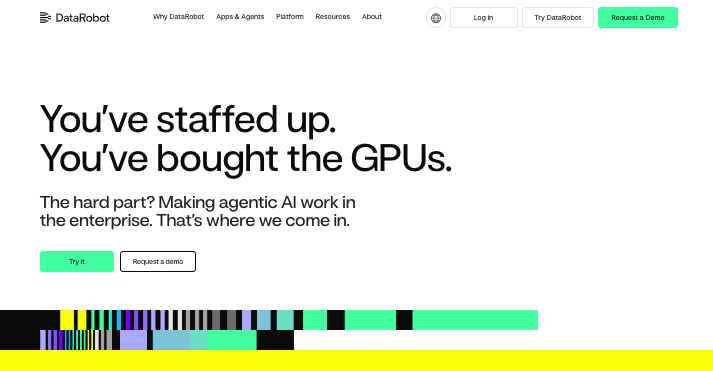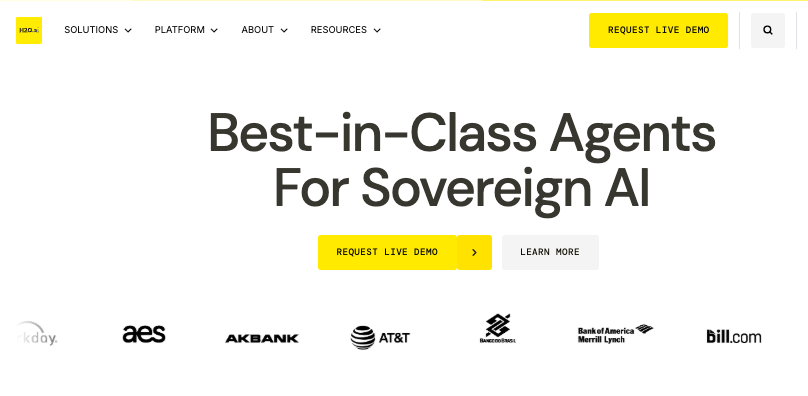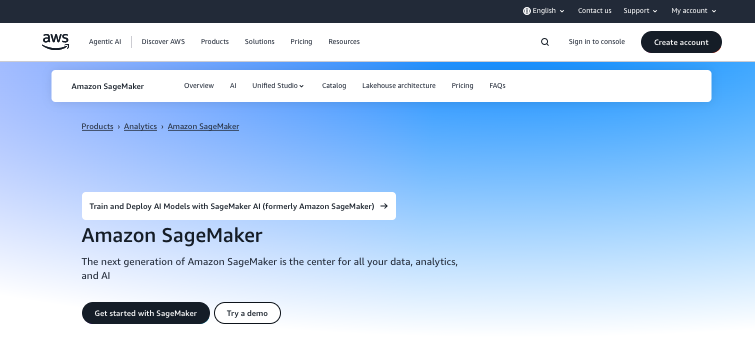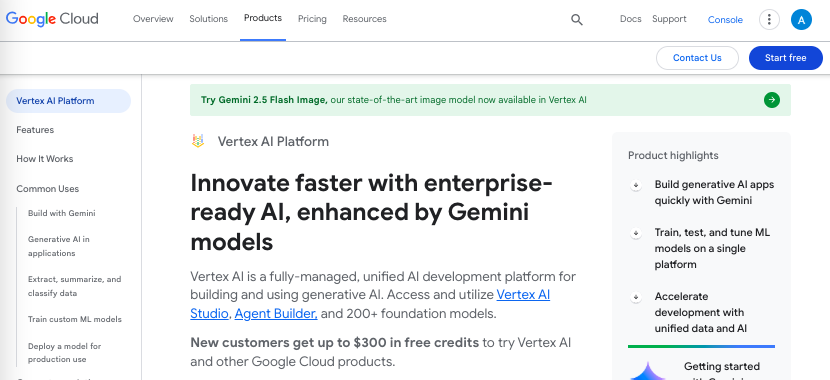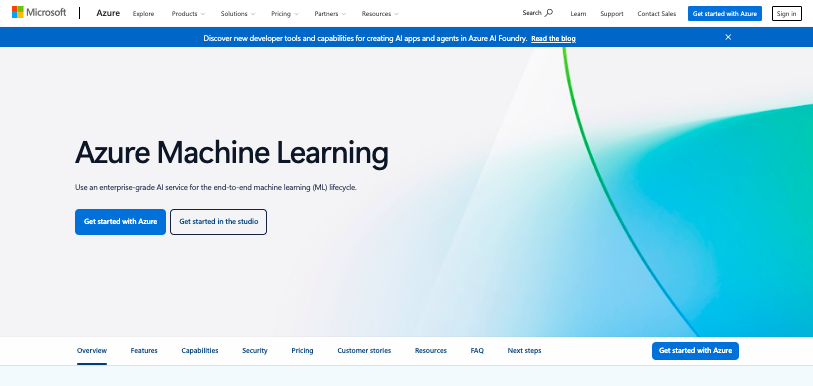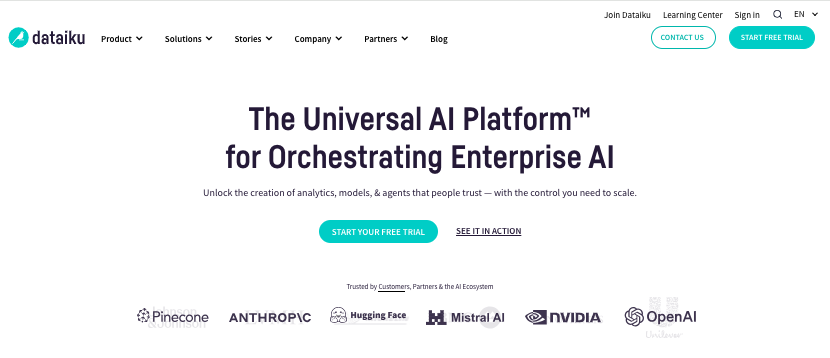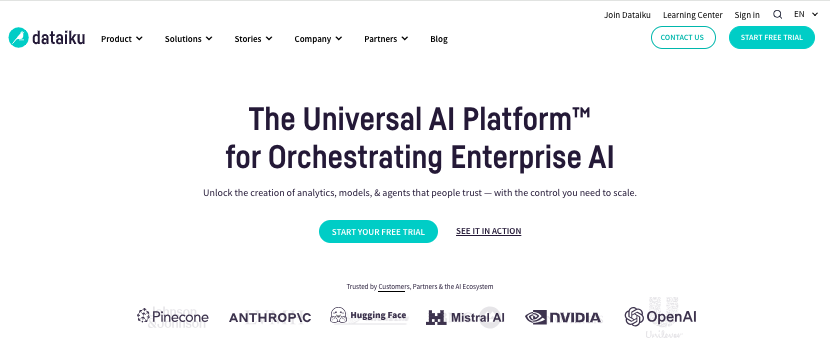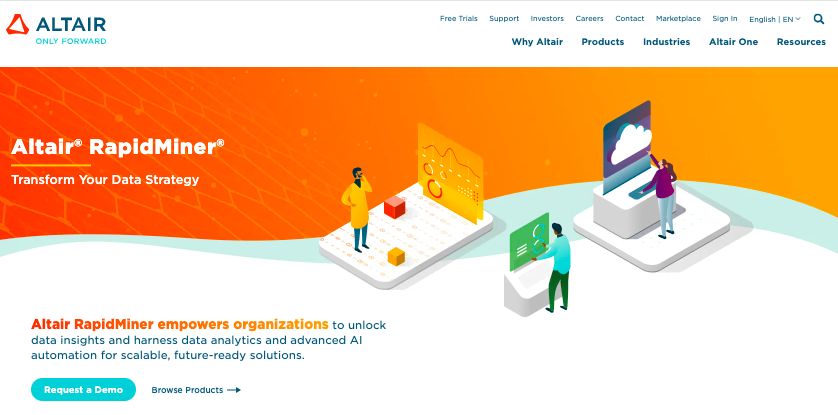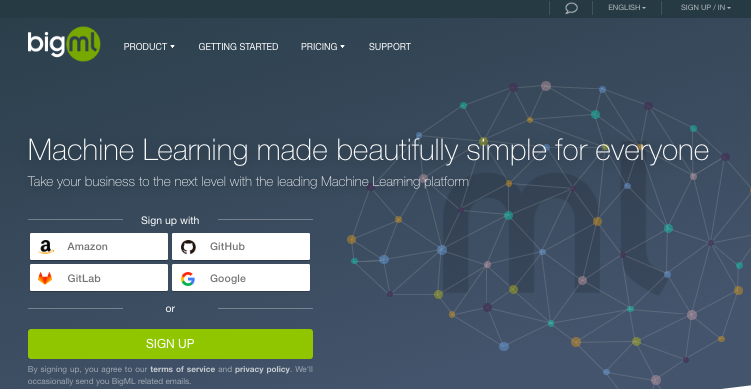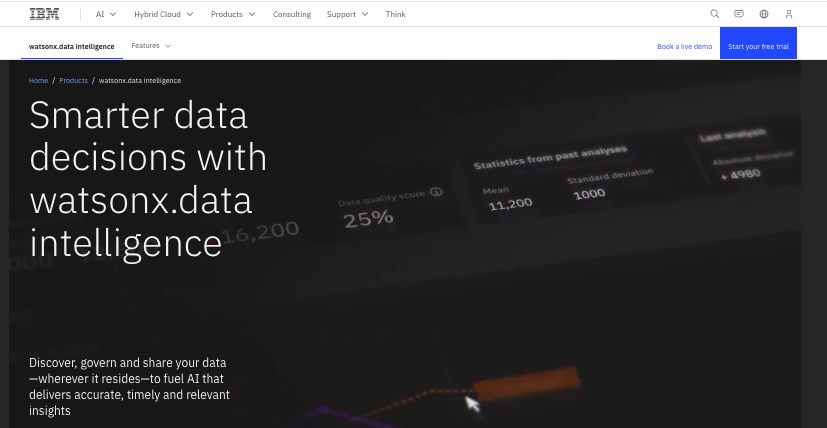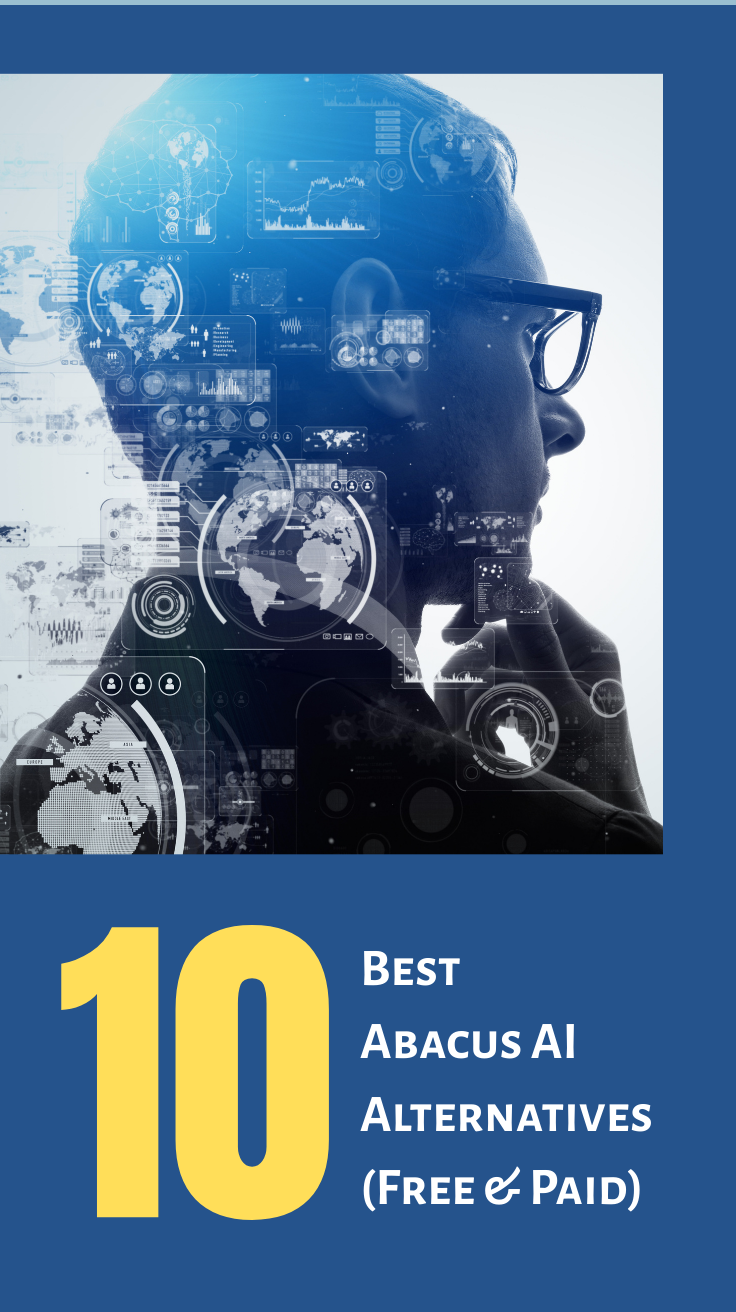Abacus AI has made quite a name for itself in the world of AI-powered predictive modeling and machine learning automation.
It helps companies deploy and maintain AI models without having to build complex infrastructure from scratch.
Still, it’s not the only option out there. If you want more customization, easier onboarding, or simply something more budget-friendly, there are plenty of great alternatives worth exploring.
Below are some of the best Abacus AI alternatives, ranging from enterprise-grade ML platforms to flexible cloud-based AI solutions, that could fit your needs just as well (or even better).
Read on.
Best Abacus AI Alternatives
1. DataRobot
DataRobot is a robust enterprise AI platform that streamlines the end-to-end machine learning lifecycle.
It automates tasks like data prep, model building, and deployment, which can save data science teams weeks of manual work.
What makes it stand out is its rich model explainability features that help you understand why predictions are being made.
It’s a great fit for organizations that want to scale AI initiatives without adding heavy engineering overhead. DataRobot also has built-in governance tools to ensure compliance and transparency, something larger teams often need.
The platform supports a wide variety of use cases, from customer churn prediction to demand forecasting.
Pricing can get steep for small startups, but its enterprise features justify the cost for many. If you want a powerhouse tool with plenty of depth, DataRobot is worth exploring.
Also Read: Everyday Artificial Intelligence Examples
2. H2O.ai
H2O.ai offers an open-source machine learning framework alongside a commercial platform called H2O Driverless AI.
It’s well-loved by data scientists for its flexibility and speed when handling large datasets. The platform provides automated feature engineering and model tuning, cutting down the time needed to build high-performing models.
H2O also supports a wide array of algorithms and is known for its scalability in production environments.
Companies like its hybrid approach, use the open-source version to experiment, then scale with the enterprise edition.
The UI is straightforward enough that even teams with moderate data science experience can get value from it quickly.
Because it’s open-source at its core, it’s also more budget-friendly than many fully commercial platforms. If you want something that balances openness and power, H2O.ai fits the bill nicely.
3. AWS SageMaker
Amazon SageMaker is a fully managed service for building, training, and deploying machine learning models at scale.
It integrates deeply with other AWS tools, which makes it convenient for teams already in the Amazon ecosystem.
You can use SageMaker’s pre-built algorithms or bring your own, and it handles most of the infrastructure setup behind the scenes.
It’s designed for flexibility, so whether you’re doing quick experiments or deploying production-grade systems, it can adapt.
One of its highlights is SageMaker Studio, which provides a collaborative development environment for data scientists.
Pricing is pay-as-you-go, making it easier to control costs if you scale wisely. There’s a bit of a learning curve if you’re new to AWS, but the extensive documentation helps a lot.
For teams that need power and elasticity, SageMaker is tough to beat.
4. Google Vertex AI
Vertex AI is Google Cloud’s unified platform for building and managing machine learning workflows.
It simplifies the ML pipeline by combining data preparation, model training, and MLOps tools in one place.
Vertex supports custom models as well as AutoML, which is great for teams that want results fast without deep ML expertise.
Since it runs on Google Cloud, it scales seamlessly with your workloads. The platform also provides built-in monitoring and version control, so you can track how models evolve over time.
Another perk is its integration with BigQuery, which makes pulling and analyzing large datasets incredibly smooth.
Pricing is usage-based, and it tends to be cost-efficient for teams that are already in the Google ecosystem.
5. Azure Machine Learning
Azure Machine Learning from Microsoft is a versatile platform that covers the full machine learning lifecycle.
It’s especially handy if you work in a Microsoft-based environment and want everything to mesh well together. The platform provides automated ML capabilities, drag-and-drop model building, and robust deployment pipelines.
Azure ML also includes powerful monitoring and governance tools, which are crucial for enterprise use. It supports Python, R, and popular ML frameworks, so you have a lot of flexibility.
While it can feel a bit enterprise-heavy at first, the interface is fairly user-friendly once you get the hang of it.
Pricing is modular, so you can pay only for what you use, which helps control expenses. It’s a well-rounded solution for both beginners and seasoned data scientists alike.
6. Dataiku
Dataiku is an end-to-end data science and machine learning platform designed to bring technical and non-technical teams together.
It has a collaborative interface where analysts, data scientists, and engineers can all work in sync. The platform makes it easy to build data pipelines, create models, and deploy them with minimal code.
One of its strongest features is how it encourages best practices like version control, reproducibility, and monitoring.
Dataiku also supports integration with popular cloud platforms and on-prem environments. Teams love how it reduces friction between experimentation and deployment.
Pricing varies based on your setup, but it’s known to be flexible for scaling organizations. If you’re looking for a tool that fosters collaboration without sacrificing capability, Dataiku is a great match.
7. Domino Data Lab
Domino Data Lab is an enterprise platform built to manage the entire data science lifecycle.
It’s often chosen by large organizations that need to keep projects organized and reproducible across teams.
Domino offers centralized workspaces, versioned experiments, and easy deployment options. It integrates with popular data science tools and frameworks, so you’re not locked into a rigid ecosystem.
A big draw is its focus on collaboration and governance, making it easier to meet regulatory requirements.
While it’s geared toward advanced teams, its interface is surprisingly approachable. Pricing skews toward the enterprise side, but it can pay off if you need the structure it provides.
For data science teams juggling many projects, Domino keeps everything on track.
8. RapidMiner
RapidMiner is a user-friendly data science platform that’s especially appealing for those without deep coding experience.
It provides a visual workflow designer that lets you drag and drop components to build models.
Despite its simplicity, it’s quite powerful and supports advanced machine learning techniques and integrations.
RapidMiner also offers automated machine learning, so you can get accurate models with minimal manual effort. It’s a popular choice in education and mid-sized businesses because of its accessibility.
There’s a free version for small-scale use, plus paid tiers with more features. The platform is cloud-based, which means you don’t have to worry about heavy infrastructure.
If you want something approachable yet capable, RapidMiner hits that sweet spot.
9. BigML
BigML is a cloud-based machine learning platform known for its simplicity and clean design.
It’s a great pick if you want to build and deploy models without wrestling with a lot of technical complexity.
The platform supports supervised and unsupervised learning, time-series forecasting, and anomaly detection. BigML’s interface makes it easy to experiment, visualize results, and quickly deploy models as APIs.
It’s often used by small companies, educators, and researchers who value ease of use.
While it’s not as feature-heavy as something like SageMaker, it’s fantastic for quick experimentation. If you’re just getting into machine learning, BigML is a friendly place to start.
10. IBM Watson Studio
IBM Watson Studio is a mature platform designed to support the full machine learning and AI lifecycle.
It gives teams tools for data prep, model training, deployment, and monitoring all under one roof. Watson Studio also integrates seamlessly with IBM’s suite of analytics and data tools, which is great if you’re already using them.
It supports both code-based and visual model building, catering to data scientists and analysts alike.
The platform emphasizes collaboration, letting multiple team members work on projects at the same time. Pricing varies by usage and feature set, with options for both cloud and on-prem deployments.
It’s especially strong in industries like finance and healthcare where compliance is critical. If you want a well-established platform with enterprise-grade reliability, Watson Studio is worth considering.
Wrapping Up
Finding the right AI platform can be a game-changer, especially if you’re looking to automate complex machine learning tasks without drowning in code or infrastructure headaches.
While Abacus AI is an excellent option, it’s far from the only one. Each of these tools can help you speed up experimentation, improve collaboration, and get reliable models into production faster.
The key is matching the platform’s strengths with your organization’s goals and resources. Try exploring their free tiers or trials to get a feel for their interfaces and workflows.
Enjoyed the post?

